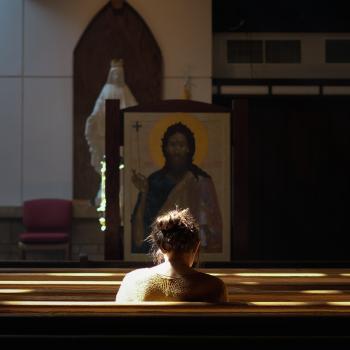The great John Allen has some wise words about building “zones of friendship” with a divided and often polarized Church:
Tensions surrounding Catholic identity are very much in the air these days, and when they erupt they’re always a prescription for heartburn. People who regard themselves as authentically Catholic rarely enjoy being be told they’re not, or that they’re only selectively so. Likewise, people who believe the faith they treasure is being misrepresented, or distorted, or eviscerated from within, typically get their Irish up.
A key question facing the church, therefore, is how to manage those tensions constructively. I offered some thoughts on that subject on Wednesday, at a conference in Chicago sponsored by DePaul’s Center for World Catholicism and Intercultural Theology and titled “The Discourse of Catholicity.”
My bottom line was that Catholicism needs a grass-roots movement to rebuild zones of friendship in the church.
I’m not talking about formal programs of dialogue, and I certainly don’t mean debating societies. What the church needs instead are spaces in which relationships among Catholics of differing outlooks can develop naturally over time. The plain fact of the matter is that such spaces have been badly attenuated by the ideological fragmentation of both the church and the wider world.
To be clear, friendship won’t magically make hard choices go away. Catholicism has to stand for something, and somebody has to decide what that is. There will be times when certain versions of Catholic identity have to be ruled out of bounds, and there will also be times when certain defenders of orthodoxy have to be reminded that it’s not their job to determine who’s in and who’s out. (Recent events at the University of Dallas illustrate the latter point, where Bishop Kevin Farrell recorded a web video responding to concern about a new undergraduate degree in pastoral ministry. Critics objected that the program is soft on Catholic identity, to which Farrell replied: “Let me remind the Catholic people of this diocese that … I’m the one who has to stand before God and say whether this is truly Catholic. That is my responsibility, and I do not take it lightly.”)
My experience is that when such moments arise, they can lead to either creative tension or destructive division. Which way things break often hinges not just on the issues involved, but also the quality of the underlying relationships among the parties.I prefaced the call for zones of friendship with three observations, outlined three challenges to implementing it, and closed with three examples which suggest there’s hope.
Read the rest. It’s well worth it!











